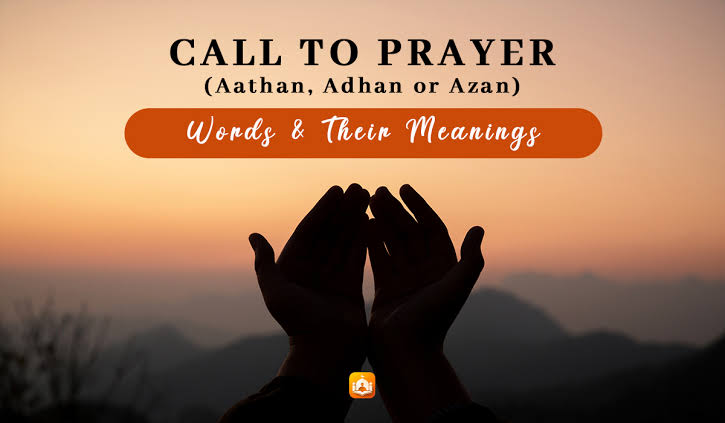The Athan, also known as the Adhan, is the Islamic call to prayer that holds deep spiritual and cultural significance in the lives of Muslims around the world. Among the five daily prayers, the Maghrib prayer holds a special place, marking the end of the day and the arrival of sunset. The Athan al-Maghrib, specifically the call to prayer for Maghrib, is a moment of reflection, gratitude, and connection with Allah (God), offering Muslims the opportunity to pause, leave behind the day’s activities, and turn to their Creator.
This article explores the significance of the Athan al-Maghrib, its historical roots, the rituals surrounding it, and its role in the daily lives of Muslims.
The Importance of Maghrib Prayer in Islam
Maghrib is one of the five obligatory prayers (Salah) that Muslims are required to perform daily. These prayers—Fajr, Dhuhr, Asr, Maghrib, and Isha—are the pillars of a Muslim’s connection with Allah and help to maintain discipline, spiritual awareness, and mindfulness throughout the day.

Maghrib prayer, specifically, is performed just after sunset, marking the transition between day and night. It is the prayer that signifies the end of the workday, a time when individuals can reflect on the day’s achievements and challenges and seek forgiveness and guidance for the future. The timing of the Maghrib prayer aligns with the natural rhythm of life, providing a moment of calm in the often busy pace of daily existence.
The Athan al-Maghrib serves as the auditory signal for the commencement of the prayer, reminding the community that it is time to disconnect from worldly pursuits and focus on their spiritual obligations.


The Call to Prayer: The Athan
The Athan, or call to prayer, is a fundamental aspect of Islamic ritual. It is delivered from a mosque’s minaret or loudspeakers, calling Muslims to perform the five daily prayers. The person responsible for delivering the call to prayer is known as the muezzin. The Athan is one of the most iconic and recognizable sounds in Muslim-majority countries and is synonymous with Islamic religious practice.
The Athan is recited in Arabic, with a melodic and rhythmic tone that is intended to capture the attention of those within earshot. It includes a series of phrases praising Allah and inviting Muslims to pray. The Athan for Maghrib follows the same basic structure as the call for the other prayers, but it is the timing and the particular significance of the Maghrib prayer that make this call unique.
Structure of the Athan al-Maghrib
The structure of the Athan is consistent across the five daily prayers, but it may have slight variations in some cultural contexts. The Athan al-Maghrib is delivered in the following sequence:
- Allahu Akbar (الله أكبر) – “Allah is the Greatest”: This phrase is repeated four times, signaling the greatness of God above all things.
- Ashhadu an la ilaha illallah (أشهد أن لا إله إلا الله) – “I bear witness that there is no god but Allah”: This affirms the central tenet of Islamic belief—the oneness of God.
- Ashhadu anna Muhammadur Rasulullah (أشهد أن محمدًا رسول الله) – “I bear witness that Muhammad is the Messenger of Allah”: This testifies to the prophethood of Muhammad (PBUH), a foundational aspect of Islamic faith.
- Hayya ala-s-Salah (حي على الصلاة) – “Hasten to the prayer”: This phrase calls believers to quickly come together for prayer.
- Hayya ala-l-Falah (حي على الفلاح) – “Hasten to success”: This emphasizes that prayer leads to success, both spiritually and in life.
- As-salatu khayrun min an-naum (الصلاة خير من النوم) – “Prayer is better than sleep”: This phrase is only included in the Athan for Fajr but is sometimes recited in variations or adaptations for other prayers in some regions.
- Allahu Akbar (الله أكبر) – “Allah is the Greatest”: The call ends with this phrase, reinforcing the central theme of Allah’s greatness.
For Maghrib, the Athan is followed by the iqama (a shorter call to prayer) just before the prayer is performed, indicating that the congregation should prepare to engage in the worship.
The Spiritual Significance of the Athan al-Maghrib
The Athan al-Maghrib is much more than just an invitation to prayer; it is a profound spiritual moment. For Muslims, it is a reminder of Allah’s presence in their lives and a signal to pause their activities and turn inward toward God. The Maghrib prayer offers a unique opportunity for Muslims to reflect on the day, seek forgiveness for any mistakes made, and express gratitude for the blessings of life.
Many Muslims view the moment when the Maghrib Athan is heard as a spiritual refreshment, a chance to reset their minds and hearts after a busy day. This time of prayer marks a transition from the world of work and distraction to a state of spiritual focus and mindfulness. In this sense, the Athan al-Maghrib serves as a kind of spiritual anchor, bringing the faithful back to their core values and reminding them of their purpose in life.
The Role of the Muezzin
The muezzin is the individual who delivers the call to prayer, and their role is one of immense responsibility and honor. The voice of the muezzin is often deeply resonant and melodious, with a tone and cadence designed to capture the attention of listeners and invoke a sense of tranquility and reverence. The muezzin’s task is not just to call people to prayer but to do so in a way that elevates the hearts of those who hear the call, enhancing the spiritual experience of the Athan.
The muezzin typically climbs the mosque’s minaret or utilizes modern sound systems to deliver the Athan. In some places, the call to prayer can be heard echoing across neighborhoods, acting as a unifying force that brings the community together at specific times each day.
The Athan’s Cultural and Social Impact
Beyond its religious significance, the Athan al-Maghrib plays an important cultural and social role in Muslim communities. The sound of the Athan is often associated with a sense of unity, as it marks the communal time for prayer. In busy urban areas, the Maghrib Athan might signal the end of a workday or a time when families gather for a meal, especially during the holy month of Ramadan, when breaking the fast at sunset is a significant ritual.
The Athan also plays a key role in the social life of Muslim-majority countries, as it serves as a reminder of shared values, tradition, and community. Even in non-Muslim-majority countries, the sound of the Athan can be a powerful reminder of religious and cultural diversity, fostering a sense of mutual respect and understanding.
Conclusion
The Athan al-Maghrib, like all calls to prayer in Islam, is a profound and deeply spiritual ritual. It is not only a call to a physical act of worship but also a reminder of the spiritual commitments that guide the lives of Muslims. The sound of the Athan marks the end of the day, providing Muslims with a chance to pause, reflect, and reconnect with Allah in the evening. Through its rhythmic, melodic tones, the Athan offers a sense of peace and tranquility, fostering a deeper connection to faith, community, and the natural rhythms of life. Whether in the bustling streets of the Middle East or in communities around the world, the Maghrib call to prayer continues to resonate as a symbol of devotion, unity, and spiritual reflection.
Do follow Uae stories for more Updates
Understanding the Exchange Rate: 1 Dirham in Sri Lankan Rupees














